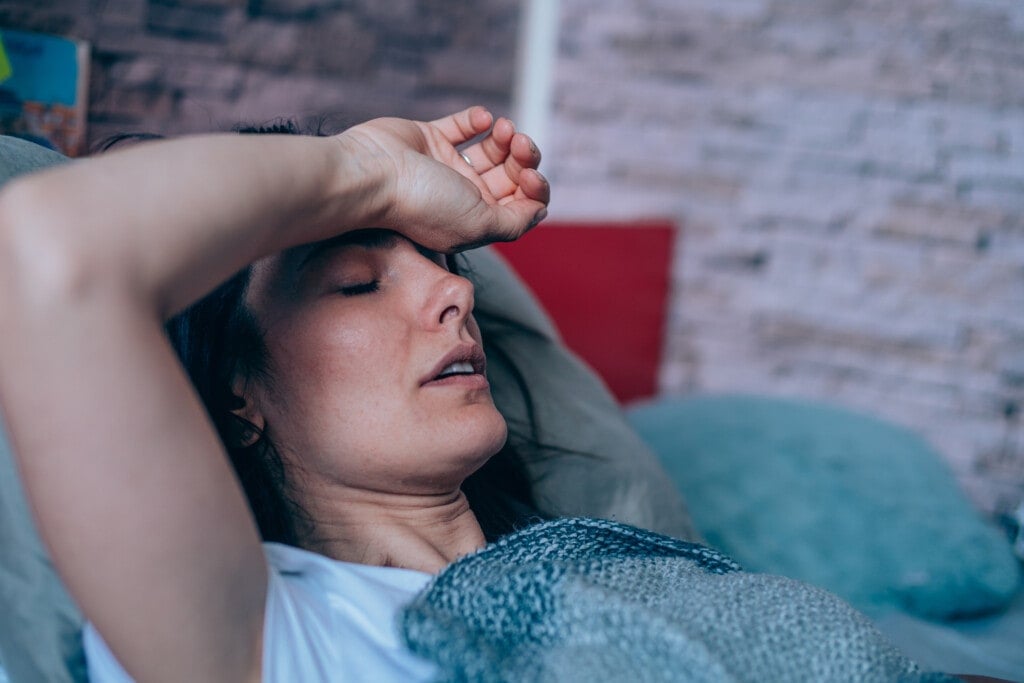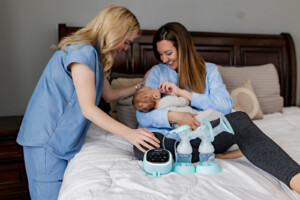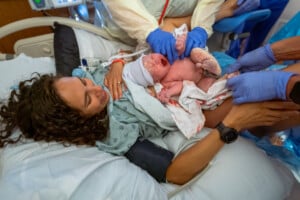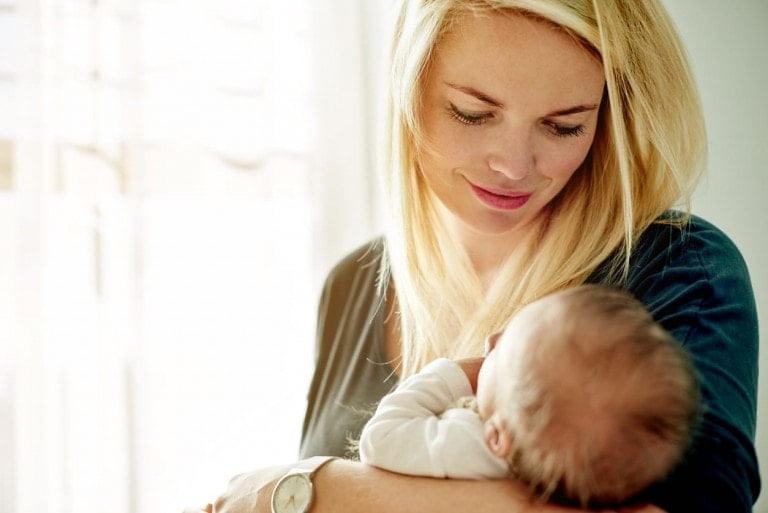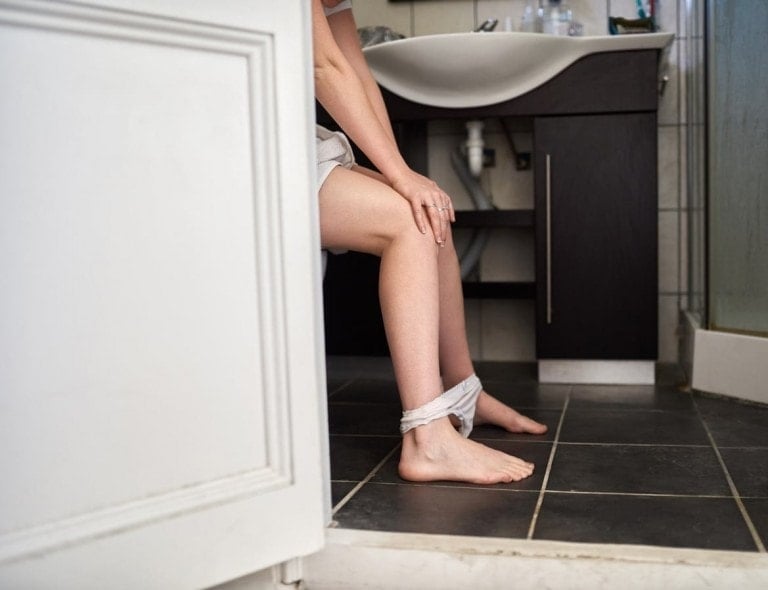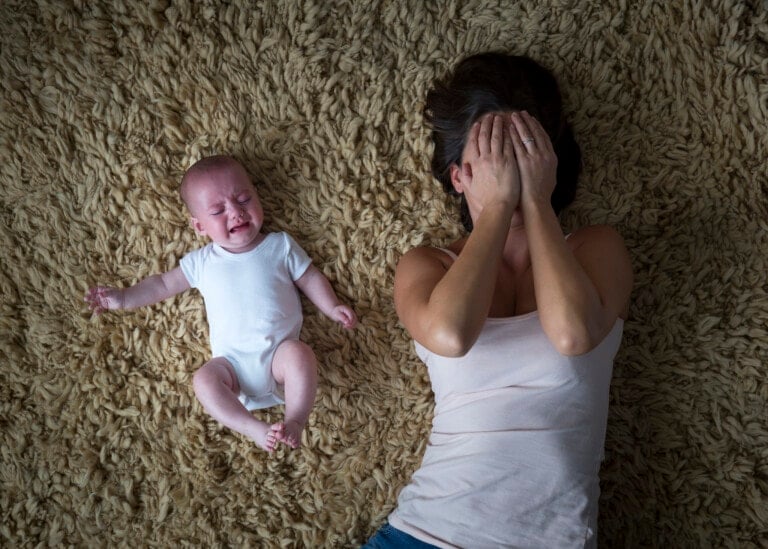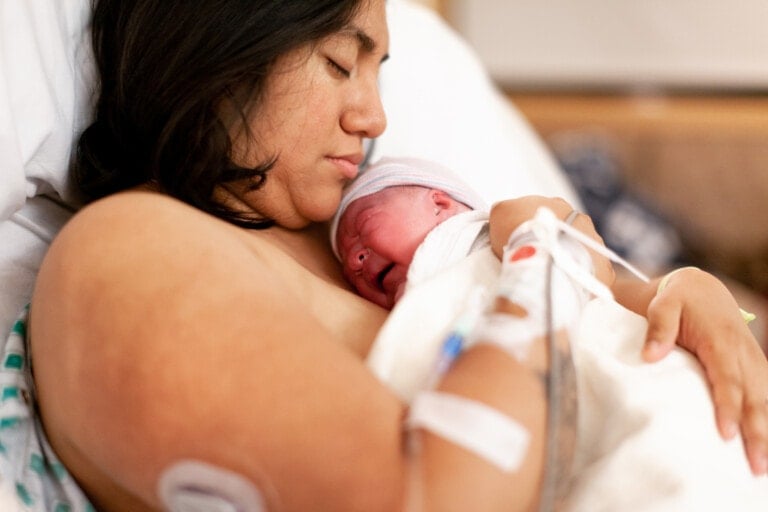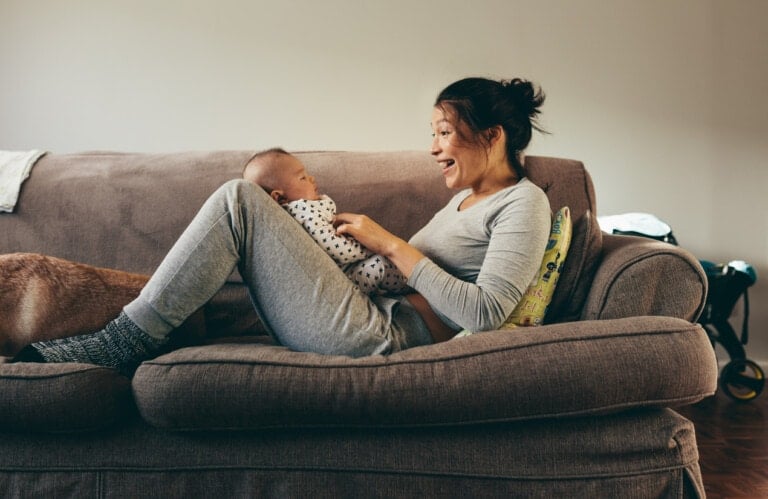So many surprises come with postpartum life — including the infamous postpartum night sweats. Just when you think you’ve waved goodbye to the discomforts of pregnancy, you find yourself waking up in a pool of sweat after your baby is born. Many changes occur in our bodies after we give birth due to fluctuations in hormone levels, lifestyle changes, physical recovery, emotional responses, and more. While postpartum night sweats are considered “normal,” they certainly aren’t fun!5 This article will explore what causes them, what they might look like, and how to cope.
What You Need To Know About Postpartum Night Sweats
Whether you realize it or not, your body increases blood volume by 45% during pregnancy.1 With this comes significant fluid shifts that occur naturally during pregnancy and again after your baby is born. These fluid shifts may cause swelling, excessive urination, and postpartum night sweats — not to mention the shifting in hormones such as progesterone and estrogen, which rise during pregnancy and decrease after delivery.5 If you’re a breastfeeding mama, you can expect estrogen levels to be low and prolactin levels to be high, which drives down estrogen levels even more.5 With that comes the major sweats. Here’s everything you need to know about them:
What Are Night Sweats?
You may wake up due to feeling hot, or perhaps you and your clothes, sheets, and pillow are drenched! Heat flashes and night sweats affect about 29% of mamas postpartum. These are associated with sleep disturbance, irritability, and impairments of day-to-day living.2
Funny enough, I once woke up feeling like I had bugs crawling all over me when it was actually beads of sweat! As if the nighttime feedings and middle-of-the-night diaper changes weren’t enough. Some mamas report their levels of anxiety can trigger hot flashes and postpartum night sweats as well.5,7 Of course, if you feel you’re experiencing postpartum anxiety or postpartum depression, please reach out to your healthcare providers.
How Long Will They Stick Around?
So, how long will these postpartum night sweats plague you? Typically, the sweats start shortly after birth. After a few weeks, once your hormones have tapered off and your body has rid itself of the extra fluid, you’ll find that they start to improve or maybe even disappear.5 Of course, like everything else, everyone is different. You may never even experience postpartum night sweats. Other mamas claim they experience them months after giving birth.
How Can I Manage Postpartum Night Sweats?
Managing this nuisance can help with the symptoms but probably won’t get rid of the postpartum night sweats completely. Here are some things you can do that might help:
1. Turn Down the A/C or Turn on a Fan
Keeping the body cool can help diminish the severity of postpartum night sweats. According to Sleep Foundation, about 65 degrees Fahrenheit (18.3 degrees Celsius) is the best bedroom temperature for optimal sleep, but this number varies between people. However, they also note that you can keep the thermostat anywhere from 60-68 degrees Fahrenheit (15.6-20 degrees Celsius) for comfortable sleep.3
2. Drink Lots of Water
You’re probably thinking, “I thought this was happening because my body was trying to get rid of fluids?!” Yes, it’s true. But drinking water and staying hydrated can help your body flush out what it needs while preventing dehydration from excessive sweating.5
3. Wear Loose and Breathable Clothing To Bed
Wearing loose and breathable fabrics to bed can be incredibly beneficial for individuals experiencing postpartum night sweats. These fabrics, such as cotton or bamboo viscose, allow for better air circulation around the body, helping to regulate temperature and wick away moisture. This can be particularly helpful for new mothers experiencing hormonal fluctuations and increased body heat due to postpartum changes. Loose-fitting clothing also reduces constriction and discomfort, promoting better sleep quality during this challenging period.5
While there may not be specific studies directly addressing postpartum night sweats and fabric choice, medical professionals often recommend breathable materials for managing night sweats.5 Perhaps ditching clothing altogether will help you sleep a bit more soundly!
4. Limit Food and Beverage Triggers
Avoiding food or drink triggers can help you manage night sweats by minimizing the likelihood of stimulating sweat production. Spicy foods, caffeine, and alcohol are common triggers known to increase body temperature and potentially exacerbate night sweats. Opting for a diet rich in cooling and hydrating foods, such as fruits and vegetables, and staying well-hydrated with water throughout the day can also aid in regulating body temperature and reducing the frequency and intensity of postpartum night sweats.10,11
5. Incorporate Deep Breathing and Relaxation Techniques Into Your Daily Living
As stated above, stress and anxiety can cause worsening hot flashes and postpartum night sweats.5 Managing stress and anxiety during the postpartum period has numerous benefits — far beyond improving postpartum sweats. You can try deep breathing and other relaxation techniques to help calm your anxiety.
6. Protect Your Sheets!
To protect your bed sheets from excessive postpartum night sweats, consider layering your bedding with moisture-wicking mattress protectors or waterproof pads to create a barrier between sweat and your mattress. Additionally, using breathable and absorbent bed linens made from natural fibers like cotton can help absorb moisture and keep you comfortable throughout the night. It’s also helpful to keep a spare set of sheets nearby for easy replacement during nighttime changes, minimizing disruption to your sleep routine.10
Should I Be Concerned About Postpartum Night Sweats?
While the postpartum night sweats are normal, there are some instances in which I would recommend reaching out to your healthcare providers. As mentioned above, if you’re experiencing postpartum anxiety or postpartum depression, please reach out. You should also contact them if you experience any of the following:5,7,8,9
- Fever (temperature greater than 100.4 degrees Fahrenheit)6
- Body aches or chills
- Excessive fatigue
- Shortness of breath
- Headache, blurry vision, and swelling of the hands, feet, or face
- Abdominal pain
- Changes in urinary or bowel patterns
- Low blood sugars
Have no fear, mamas! Like the discomforts of pregnancy, the postpartum night sweats won’t last forever. And know that while you’re taking the proper steps to improve this postpartum side effect, you’re also improving other aspects of your health and well-being.













